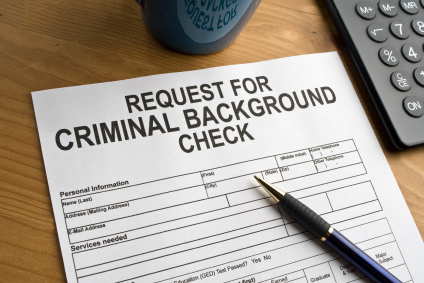The Department of Housing and Urban Development, or HUD, released guidance on Monday for landlords and sellers on consideration of criminal records in housing, making it clear that blanket bans on renting or selling to anyone with a criminal record constitute illegal discrimination in violation of the Fair Housing Act.
Instead, housing providers must have a policy that looks at individuals on a case-by-case basis to distinguish between “criminal conduct that indicates a demonstrable risk to resident safety and/or property and criminal conduct that does not.” This guidance applies to all housing covered by the FHA, including housing owned by private or nonprofit landlords.
Between 70 million and 100 million Americans—or as many as one in three—have a criminal record. Many have only minor offenses, such as misdemeanors and non-serious infractions; others have only arrests without conviction. Nonetheless, because of the rise of technology and the ease of accessing data via the Internet—in conjunction with federal and state policy decisions—having even a minor criminal history now carries lifelong barriers that can block successful re-entry and participation in society.
With access to online databases of both criminal and sex offenders in recent years, buyers can easily check addresses or Zip codes on sites like the FBI’s National Sex Offender Registry or RealtyTrac’s Homefacts.com to find out for themselves how many potentially dangerous people reside a Zip code they are considering and where they live.
A recent study by the Center for American Progress, “One Strike and You’re Out; How We Can Eliminate Barriers to Economic Security and Mobility,” found an estimated four out of five landlords employ background checks to screen out prospective tenants with criminal records. Many landlords refuse to rent to individuals with criminal records based on concerns.
A criminal record serves as both a direct cause and consequence of poverty. It is a cause because having a criminal record can present obstacles to employment, housing, public assistance, education, family reunification, and more; convictions can result in monetary debts as well. It is a consequence due to the growing criminalization of poverty and homelessness, the study said.
“Having a criminal record remains a major driver of poverty and racial inequality. Moreover, access to safe and stable housing is critical to successful re-entry—and is a powerful anti-recidivism tool. By ensuring that American families have a fair shot at securing housing, this measure has the potential to address housing discrimination, keep families together, and save taxpayer dollars in the form of reduced incarceration costs—all while increasing public safety,” the Center said.
RealtyTrac recently reported that is new offender index has found that average home values and home equity were lower — while average foreclosure rates were higher — in Zip codes with a higher offender index than in zip codes with a lower offender index. However, average home price appreciation has been slightly stronger in zip codes with a higher offender index than in Zip codes with a lower offender index, but only Zip codes with the lowest percentages of offenders have seen home prices rebound above levels from 10 years ago. (See How do Databases of Offenders Hurt Home Values?)
“This new index provides concrete evidence that registered criminal offenders pose not only a potential safety risk for homeowners and their families, but also a potential financial risk for what is likely a homeowner’s biggest asset,” said Daren Blomquist, senior vice president at RealtyTrac. “This is clearly evident in the significantly lower home values and significantly higher foreclosure rates in zip codes with a higher offender index, but it may not be as evident in the home price appreciation numbers, which are actually slightly stronger over the past year and five years in zip codes with a higher offender index. However, the 10-year appreciation numbers demonstrate home values in the lowest-risk zip codes for offenders were not hit as hard during the housing downturn and have rebounded more quickly back to their previous highs — even exceeding those previous highs.”
 RealEstateEconomyWatch.com Insight and Intelligence on Residential Real Estate
RealEstateEconomyWatch.com Insight and Intelligence on Residential Real Estate


One comment
Pingback: HUD: FHA Sellers and Landlords Can’t Discriminate Against Criminals | Belair Realty